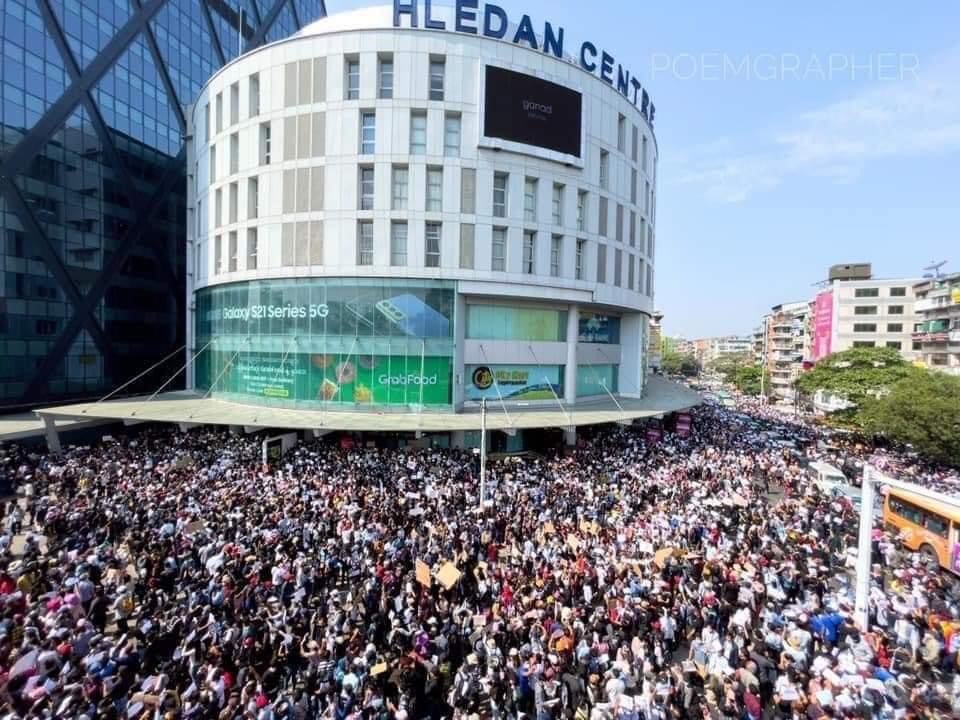By Jose Paolo S. dela Cruz
A Filipino in Yangon tells PeopleAsia how life has changed overnight in her second home, as its people pushes back to restore their recently lost civilian government.
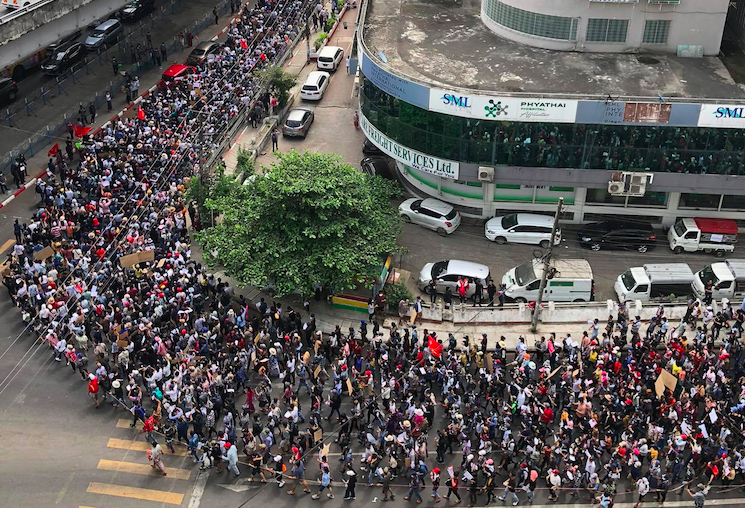
On Feb. 01, 2021, Mina, like the rest of Myanmar, woke up to troubling news.
National League for Democracy leader and State Counsellor Aung San Suu Kyi had been detained by the military, along with a number of senior politicians, for alleged election fraud. A state of emergency was declared in a military takeover, led by commander-in-chief Min Aung Hlaing.
Mina, who asked that her identity be withheld for security reasons, states that the next few days after the coup brought in a wave of uncertainty for her, her fellow expats, and even her local colleagues. “It was a sad day for everyone when the news broke. Myanmar’s growth has been rapid in the years after it gained back its democracy,” she says.
Prior to the political crisis, Mina said the outlook in Myanmar had been generally rosy. Some business experts even predicted that expats such as Mina would find their numbers dwindling within the decade, after they have equipped locals with the necessary skills to run new industries.
Today’s outlook is not as optimistic. “I have repatriated colleagues who came back to the country after the civilian government was installed in 2011. Now they’re distressed. Some of them wish they never came back.”
Uncertain days
As one of approximately 1,200 Filipinos in Myanmar, Mina admits that every day following the coup is an uncertain one. “The Philippine Embassy has advised us to just stay put in our homes and avoid joining the rallies for safety reasons. However, we were also advised to pack our ‘go bags’ in case the situation calls for us to be repatriated,” she says.

Mina also shares that banks have imposed a cap on dollar withdrawals, forcing a few expats to go bank hopping in order to secure their savings. On some days, banks were altogether closed.
Curfews have also been reportedly enforced in various parts of the country, in an attempt to quell civilian mass protests.
Internet and mobile communications have also been cut off a few days following the coup. And while it has been restored, the service remains unstable and is at risk of being cut off at the military government’s behest. “It’s a good thing I still had my SIM card from the Philippines when the news broke. I was able to call my mom. Local SIM cards stopped working on the day of the takeover,” she says.
Mina, however, notes that her local colleagues shine like a beacon of hope in an otherwise dreary situation. “Myanmar has the nicest people. Even in the midst of these, our local colleagues think of our safety and keep us updated of what’s happening outside via Messenger, since news here is pretty sanitized, and we’re staying at home as much as we can.
‘Like Edsa’
On the morning of Feb. 08, a week after the civilian government was toppled over, Mina woke up to a different sight, as seen in the photos she and her colleagues took, and later shared with us.
The Burmese people’s shock and grief had now morphed into anger and indignation. It was the third day of protests and the streets near her apartment began to flood with protesters numbering in the thousands who were set to converge at Sule Square in Yangon.
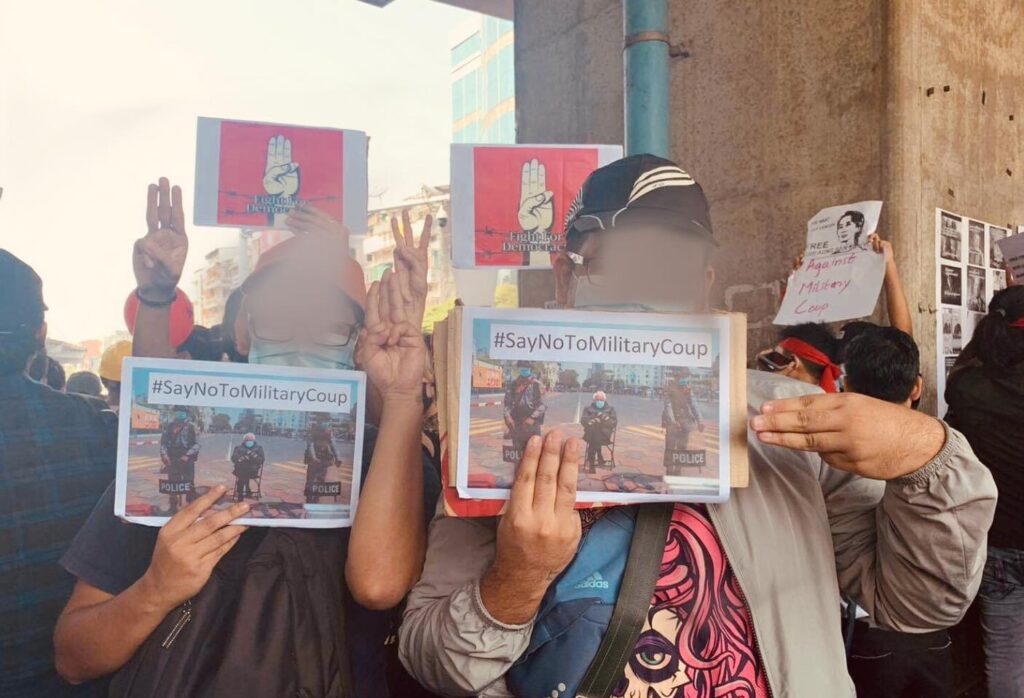
“I felt emotional the first time I saw them bearing their placards and marching the streets. It reminded me of the Edsa People Power Revolts,” she shares. Mina also notes that the protesters, mostly comprised of the young, were very disciplined and marched together in orderly lines.
“Even at the height of COVID-19, there was never panic or rush in the streets, here. I think the people of Myanmar also imbibed the disciplined culture of the military. But what’s more inspiring is how you see the same discipline at a time when they’re fighting for their rights,” she says.
Praying for her second home
When Mina came to Yangon for a vacation almost a decade ago, she immediately fell in love with the warmth of the people and city’s altogether different vibe.
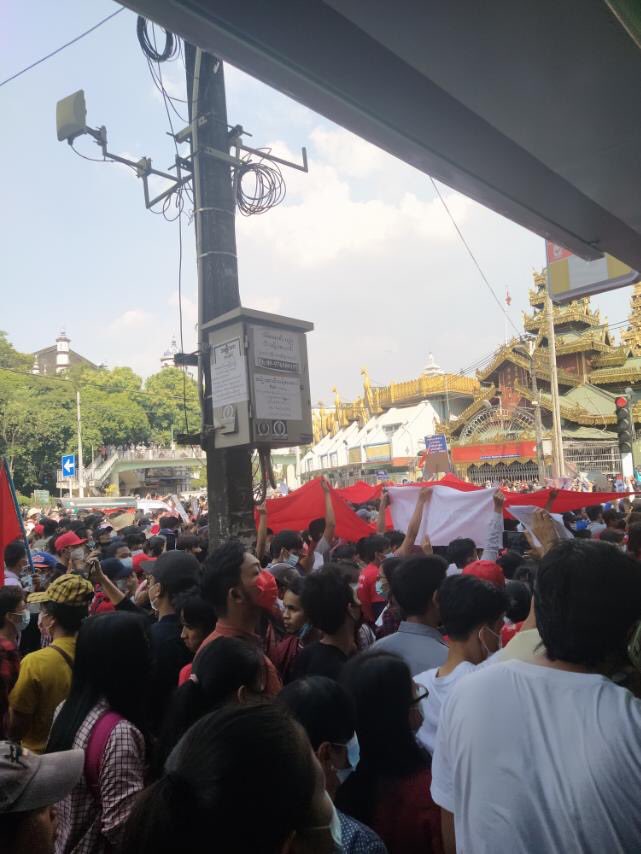
“It was ‘half a city,’ in a sense that it’s not as fully developed, but robust construction is underway and the mindset is already there. Locally, I would liken it to Bacolod,” she describes of Yangon. There was no Grab, just a few convenience stores, and haggling was part of the everyday scene.
However, it was the warmth of the people that convinced her to grab the professional opportunity that presented itself in Myanmar. “They’re kind and optimistic. They make you feel like you’re at home. And seeing them united, too, it makes us pray that everything turns out well for them,” she shares.
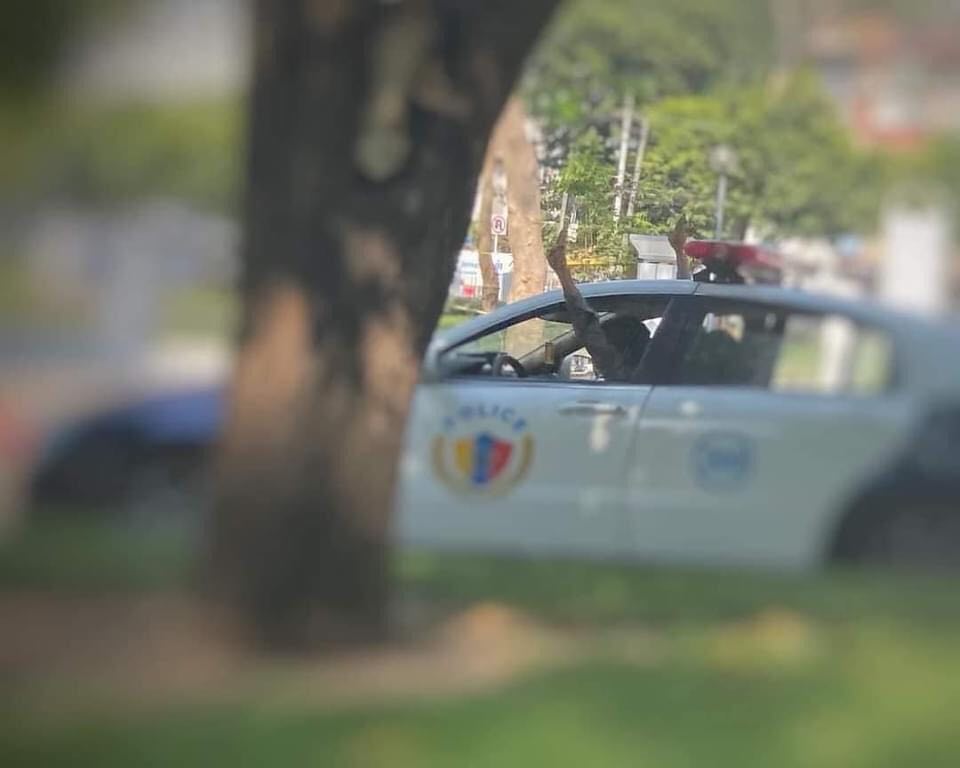
At the end of our interview, Mina tells us that news has been circulating that Martial Law would be declared in the next few hours. True enough, it was.
And while the future remains uncertain for Myanmar, Mina maintains that not all hope seems lost in “The Land of the Golden Pagodas.” She’s seen it twice in Edsa, and hopefully soon, in her second home.

